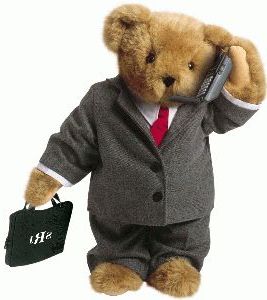It's human nature to want to achieve something. What normal person is not delighted to be recognized by a person or organization in authority and praised for their accomplishments?
This type of recognition can be likened to a ladder of success that you are encouraged to climb. For example, teachers commonly award colored stars to children who perform well. These stars are even stuck on a display board for other students to see.
The eBay PowerSeller program falls into the same category.
You are probably already familiar with the term âPowerSeller' but in case you are not, the term was started by eBay as a way of recognizing their top sellers, in a tiered system, according to total monthly gross sales.
At the eBay Live events (the annual eBay conference), sellers can be seen proudly wearing an extra tag on their badge that identifies them as a particular level of PowerSeller. It's a big deal to most sellers. Strangely enough though, when they are back in their hotel no one else has a clue about what a PowerSeller is, much less care that the person has an extra label on their badge..
Be very careful about your perception of the âPowerSeller' label. It is simply eBay's way of encouraging achievement among members. In a way, it's crafted as a kind of club, which everyone is encouraged to be part of. To the untrained eye it appears to be a valid goal to aspire to. And as you might expect, eBay promotes this view - they want all sellers to become PowerSellers because it makes the company look more successful, and hence more valuable to investors.
What Does Being a PowerSeller Really Mean? In financial terms, being a PowerSeller simply means that within a period of three months, a seller sold at least $1000 worth of goods or services per month. However, it does not make any guarantee that the seller made any profits from those sales. For example, a seller may have sold $10,000 worth of watches, winning them the title of PowerSeller after 3 months of such sales, but if they had paid $15,000 each month for those watches, they actually lost $5,000 per month.
Having the PowerSeller title applied to a seller also does not guarantee that their business is run ethically. eBay stipulates that a PowerSeller's feedback percentage must remain at 98% or higher, but this does not seem to be strictly enforced. If a seller falls below that mark they are commonly given time to improve. Although 98% may sound high, in real terms that could mean 10 deeply unhappy buyers out of 500 transactions. In my view, that is unacceptable. A 99% or higher rating should be easily achievable by any reputable seller.
You only need to browse eBay briefly to discover countless PowerSellers with many negative feedbacks. Beware!
As we've already established, it's human nature to seek recognition in what we do, and eBay makes the most of this natural in-built desire by offering and actively promoting the PowerSeller program. Sellers are continually encouraged to work their way up the âsuccess ladder' to reach the âgoals' of each level of the PowerSeller program.
Although there are some small benefits as a result of achieving certain levels of sales, there is a very significant practical downside to being a PowerSeller that most eBay users are ignorant of.
So why should you avoid becoming a PowerSeller generally? Actually there are several reasons to steer clear of the program. One of the reasons you do NOT want to be a PowerSeller is that having that label brings attention from both eBay (the company) and other sellers.
You may or may not know that eBay actively seeks out PowerSellers because they know that they are serious about selling on eBay, and by extension they probably produce the majority of eBay's profits. eBay staff contact PowerSellers by phone and email regularly, to encourage them to expand their business. Here's the downside: in offering practical help, eBay needs to look at your listings!
On the surface, that seems like a good thing, right? Well, for traditional sellers it is, but we're not traditional sellers are we?
The main problem lies in the ambiguity of many of eBay's policies. Throw into the mix a wide variety in the quality of training of staff members, and the net result is that some staff are more diligent than others in asking sellers to correct what they perceive to be policy violations. The same problem exists in any organization the size of eBay. It's impossible to be completely consistent and enforce policies that are open to interpretation and that don't apply to every seller in every situation.
Being a PowerSeller also attracts the attention of other eBay sellers. eBay encourages this by giving PowerSellers a special logo that appears at the top of each listing page by default.
While I genuinely believe that most sellers are good and honest people, it's also true that a few get some kind of sadistic pleasure from reporting minor infringements of other sellers to eBay. PowerSellers definitely bear the brunt of these attacks it seems that some people resent the apparent success of others.
The bottom line is, considering all the factors, it's better to stay away from the PowerSeller program other than perhaps using it for one eBay account for the times when you need to establish credibility or be listened to by eBay customer service.

